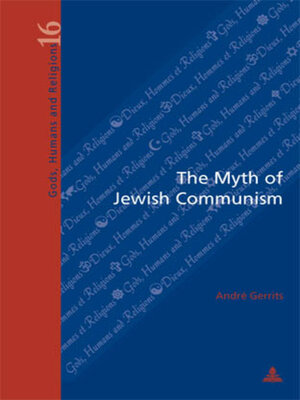The Myth of Jewish Communism
ebook ∣ A Historical Interpretation · Dieux, Hommes Et Religions / Gods, Humans and Religions
By Gabriel Fragnière

Sign up to save your library
With an OverDrive account, you can save your favorite libraries for at-a-glance information about availability. Find out more about OverDrive accounts.
Find this title in Libby, the library reading app by OverDrive.



Search for a digital library with this title
Title found at these libraries:
| Library Name | Distance |
|---|---|
| Loading... |
'Jewish Communism' was one of the most powerful and destructive political myths in 20th-century Europe. The cry of Jewish communist conspiracy turned traditional, often religiously inspired anti-Jewish sentiments into a murderous anti-Semitic rampage.
The connection of Jews with communism has always been an extremely sensitive issue, which cannot simply be dismissed as a fully irrational phenomenon. Jews were disproportionately present in the revolutionary movement. This does not make the myth of Jewish Communism less mythical, but it does imply that real interests and conflicts were involved.
This book presents the first full-length analysis of the identification of Jews with communism. It traces the myth of Jewish Communism from the traditional anti-Jewish prejudices on which it is built, to its crucial role in Eastern European Stalinist and post-Stalinist politics. It documents the painful controversies that the participation of Jews in the revolutionary movement has generated among Jewish observers, among communists, and also among historians.
The connection of Jews with communism has always been an extremely sensitive issue, which cannot simply be dismissed as a fully irrational phenomenon. Jews were disproportionately present in the revolutionary movement. This does not make the myth of Jewish Communism less mythical, but it does imply that real interests and conflicts were involved.
This book presents the first full-length analysis of the identification of Jews with communism. It traces the myth of Jewish Communism from the traditional anti-Jewish prejudices on which it is built, to its crucial role in Eastern European Stalinist and post-Stalinist politics. It documents the painful controversies that the participation of Jews in the revolutionary movement has generated among Jewish observers, among communists, and also among historians.







